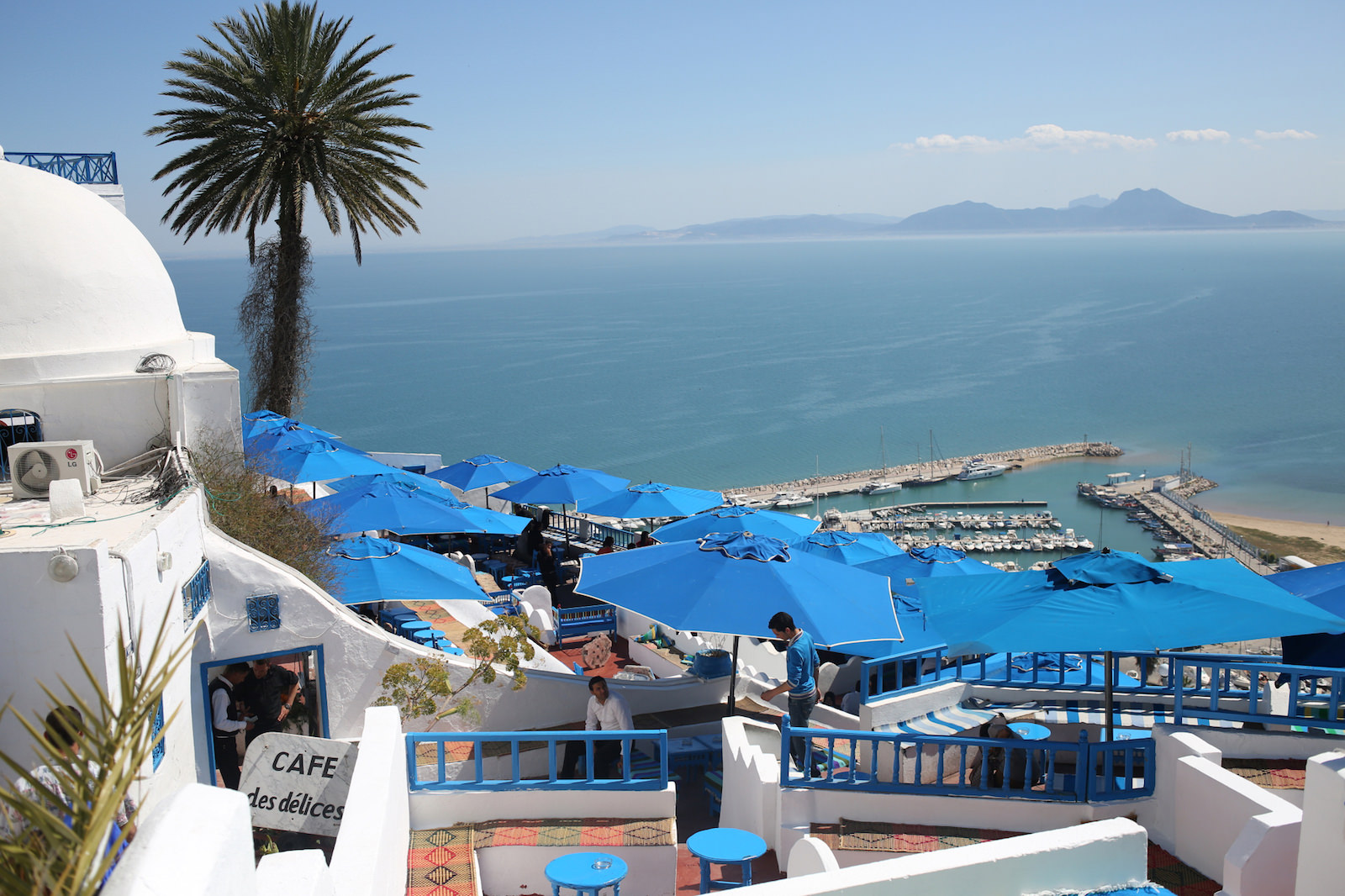
Interview with His Excellency Mr. Mohamed Elloumi, Ambassador Extraordinary and Plenipotentiary of the Republic of Tunisia to Japan
Min-On: We’d like to open by thanking you from our heart on the grand success of the Emel Japan Tour.
H.E. Ambassador Mohamed Elloumi: The song, “Kelmti Horra” (“My Word is Free”) by singer-songwriter Emel Mathlouthi became the anthem of our 2011 Jasmine Revolution, inspiring the lives of millions of Tunisians.
Singing of climate change, children caught in the middle of armed conflict, freedom—Emel’s compositions are about things that are global and highly relevant to our times, an expression of the Sustainable Development Goals (SDGs) themselves. She is no longer merely popular in Tunisia but has since become a vocalist with a worldwide following. She gives voice to those who have no voice.
Min-On: Allow us to ask you a few questions on the culture of Tunisia…
Ambassador Elloumi: My country’s origin story dates back more than three millennia ago. Because Tunisia had over those years become a melting pot of diverse cultures and rich in history, our country’s history has been likened to a mosaic. In fact, there are famous mosaics in our country reflecting that long Tunisian history.
In addition, Tunisia is blessed with beautiful natural environments, from Sidi Bou Said, a picturesque community by the Mediterranean Sea, and the ever-wondrous Sahara Desert.
Many Japanese artists have visited the Sahara for creative inspiration. The poet Madoka Mayuzumi, for example, has composed haiku poetry following her encounter with that expanse. We have numerous other examples of cultural exchanges occurring between Tunisia and Japan.
Min-On: Can you share some thoughts on Tunisian food culture?
Ambassador Elloumi: Two of the most prized and renowned products of Tunisia are olive oil and wine, both boasting very long histories and made for over 2,000 years. Tunisian olive oil is made to this day in the same way it has been over the centuries. It is rich in polyphenol and used to prepare various dishes with harissa, a spice that is equally indispensable to Tunisian cuisine. I hope people in Japan can sample it some time.
Tunisia is also famous for our mouth-watering sweets. Among the most popular is makrout, a local cookie painstakingly made one by one that is filled with a mosaic of dates and nuts. We often enjoy makrout with our mint tea while listening to music.
Min-On: Isn’t jasmine another popular product of Tunisia?
Ambassador Elloumi: Jasmine is our national flower, and we often see it in bouquets presented at wedding ceremonies. Tunisia is also renowned for perfume, with every household carrying forward traditional methods of making jasmine, rosewater, orange blossom water and geranium floral water.
Min-On: We thank you for sharing your thoughts on Tunisian culture and look forward to continued ties of friendship and goodwill between Japan and Tunisia.
Ambassador Elloumi: I am profoundly grateful that the Emel Japan Tour presented Japanese audiences with an opportunity to learn more about Tunisia. Because Tunisia will be hosting the Tokyo International Conference on African Development (TICAD) in 2022, we would be delighted to welcome various Japanese artists to our country at that time. Moreover, please continue to invite performing artists from around the world to Japan and introduce their musical talents.






